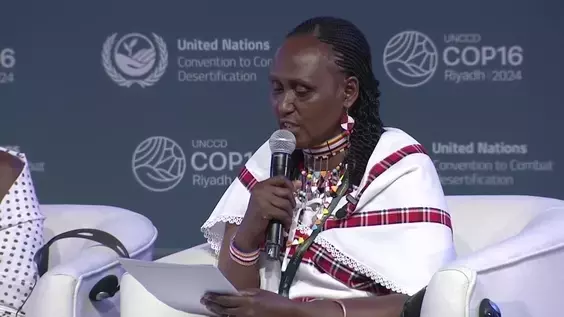The United Nations Convention to Combat Desertification's sixteenth session of the Conference of the Parties (COP16) is set to unfold in Riyadh, Saudi Arabia, from 2 to 13 December 2024. This significant event holds the key to recognizing shared lands, rights, knowledge, and institutions in a world that is constantly evolving. By delving into the reality and potential of inclusive governance for rangelands and pastoralists, it aims to shed light on the importance of considering mobility as an integral part of pastoralism and its crucial role in the adoption of equitable and adaptive governance systems.
Uniting for Inclusive Governance in the Desertification Battle
Analyzing the Significance of COP16
The 2024 COP16 in Riyadh is more than just a conference; it is a platform for global collaboration. It brings together experts, policymakers, and stakeholders from around the world to address the pressing issue of desertification. The event serves as a reminder of the interconnectedness of our planet and the need for collective action. By focusing on inclusive governance for rangelands and pastoralists, it offers a unique opportunity to explore innovative solutions and strategies that can lead to sustainable development in these vulnerable regions. 2: The significance of COP16 extends beyond the conference itself. It has the potential to inspire change at local, national, and international levels. Through the sharing of knowledge and best practices, it can help build capacity and empower communities to take ownership of their natural resources. This, in turn, can lead to the implementation of more effective policies and practices that promote the conservation and sustainable use of rangelands and pastoral systems.Highlighting Mobility as a Key Element
Mobility plays a vital role in pastoralism, and COP16 recognizes its significance. Pastoralists have long relied on the ability to move their herds in search of better grazing lands and water sources. This mobility is not only essential for their livelihoods but also for the health and sustainability of rangeland ecosystems. By considering mobility as a substantial element of pastoralism, COP16 aims to ensure that governance systems are designed to accommodate and support this traditional way of life. 2: Incorporating mobility into governance systems requires a comprehensive understanding of the needs and challenges faced by pastoralists. It involves developing policies that promote the free movement of people and livestock while also addressing issues such as land tenure, water rights, and conflict resolution. By doing so, COP16 can help create an enabling environment for pastoralism to thrive and contribute to the overall goal of combating desertification.The Role of Inclusive Governance
Inclusive governance is at the heart of COP16. It recognizes that the success of any governance system depends on the active participation and ownership of all stakeholders. By involving pastoralists, local communities, and other relevant actors in the decision-making process, COP16 aims to ensure that policies and practices are tailored to their specific needs and contexts. 2: Inclusive governance also promotes the sharing of knowledge and resources among different stakeholders. It encourages the exchange of ideas and experiences, leading to the development of more innovative and sustainable solutions. Through collaborative efforts, COP16 can help build stronger partnerships and networks that can drive positive change in the fight against desertification.You May Like

